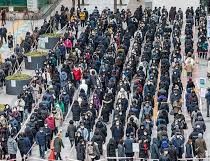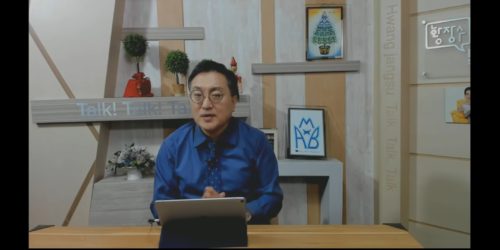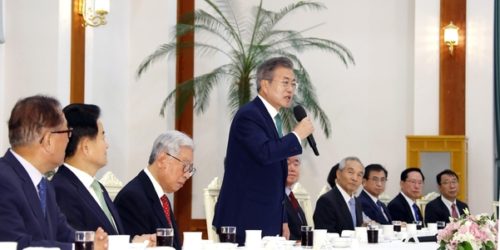Huawei’s Chips Banned by the U.S. in South Korean Defense Ministry’s 40,000 Smart Speakers, Ministry “Didn’t Know”
2020-10-5, TV Chosun [TRANSLATION]
From now on, I will focus on our exclusive report that China’s Huawei semiconductor chips, which the U.S. banned for security reasons, has been installed inside our military units, causing security problems.
As you know, Huawei, a Chinese company that is subject to high-intensity regulatory measures since September 15, 2020, is also a symbol of the U.S.-China conflict. That is why our semiconductor companies stopped supplying products to Huawei.
In other words, whether or not Huawei equipment is used or not has become an important security agenda item that can affect the ROK-U.S. alliance. However, when we opened up the AI (Artificial Intelligence) speakers (smart speakers)–48,000 of which our military installed in each unit last year–it was confirmed that the chips made by Huawei were inside. A so-called “backdoor” that infiltrates communication networks and steals information has been found on Huawei smartphones sold in the United States, but our military did not even know that the Huawei chips were installed [in the AI speakers].
[Note: the AI speakers are smart speakers, like Alexa, Google Assistant, Siri, etc.]
AI speaker promotional video plays
“GigaGini, play some upbeat songs.” “Yes, will do.”
This is a promotional video of a large AI speaker. It plays music, informs about the weather, and operates TV functions.
Since last year, the Ministry of National Defense (MND) has installed more than 48,100 smart speakers in all the barracks, where soldiers live.
However, when we disassemble the speaker, we can see the logo of the chip called “Hi-Silicon.” It is a subsidiary of China’s Huawei and is subject to U.S. sanctions.
Last year, U.S. Forces Korea removed Huawei’s communications equipment inside and around the military bases and urged allies to refrain from using it.
Mark Esper / U.S. Secretary of Defense (Last March)
“We will evaluate it on a case-by-case basis when we confirm that our partners and allies have adopted Huawei technology.”
When the National Assembly [lawmaker Yun Ju-gyeong (윤주경), People Power Party] pointed out that the military equipment was equipped with Huawei chips, the Ministry of Defense said, “We were not aware of the fact (that the Huawei chips) were installed.”
The MND argued that “there is no possibility that the information can be stolen, because data transmission is impossible with only the media processing chipset.”
[Note: This is not true, because AI speakers are specifically designed to be used with the internet, as the processing of the commands require communications with the data centers.]
However, the opinions of the experts were different.
Lim Jong-in (임종인) / Professor, Graduate School of Information Security, Korea University
“That’s because they want to believe that there is no problem. To (confirm) whether it has the ability to collect and transmit information secretly, we have to do a full analysis of the chipset…”
Source: http://news.tvchosun.com/mobile/svc/osmo_news_detail.html?contid=2020100590108





